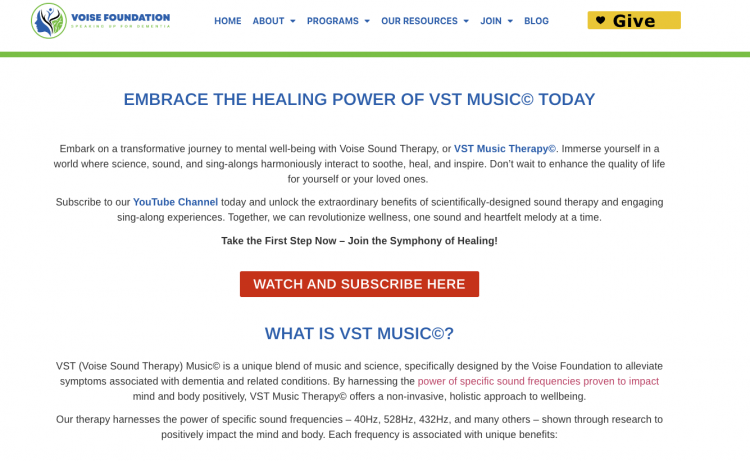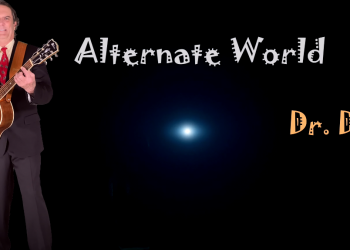For centuries, music has been recognized as a powerful tool for fostering emotional well-being and cognitive stimulation. This is especially true for individuals experiencing dementia, where music therapy has emerged as a promising intervention to improve various aspects of their lives.
The Voise Foundation, a non-profit organization dedicated to improving the lives of individuals with cognitive decline, has developed the specifically tailored for dementia patients. This innovative program leverages the combined benefits of music and technology to create a personalized and engaging experience for individuals with varying levels of cognitive impairment.
The Power of Music in Dementia Care
Music therapy has become increasingly recognized as a valuable tool in managing various aspects of dementia. Research suggests that music can:
- Improve memory and cognitive function: Engaging with music can stimulate the brain’s auditory and memory centers, potentially aiding in the recall of memories and enhancing cognitive function.
- Reduce anxiety and depression: Music therapy can evoke positive emotions, promote relaxation, and alleviate symptoms of anxiety and depression commonly experienced by dementia patients.
- Enhance communication and social interaction: Music can provide a shared experience and a platform for non-verbal communication, fostering social interaction and connection with others.
- Improve mood and well-being: Music can uplift mood, promote a sense of calm, and enhance overall well-being in individuals with dementia.
The VST Music Program: A Personalized Approach to Music Therapy
The Voise Foundation’s VST Music Program takes music therapy a step further by incorporating virtual reality technology. The program utilizes a specially designed headset that projects personalized music videos onto a screen worn by the participant. These videos feature familiar songs from the participant’s past, often from their youth or early adulthood, tailored to their individual preferences and cultural background.
The VST Music Program Experience
The VST Music Program experience is designed to be engaging and stimulating for dementia patients. Here’s a breakdown of the key elements:
- Personalized Music Selection: Based on the participant’s life history and preferences, a personalized playlist of familiar songs is created. This ensures the music resonates with the individual and evokes positive memories and emotions.
- Interactive Visuals: The program incorporates synchronized visuals with the music, creating a captivating and immersive experience. These visuals can include images, lyrics, or video snippets related to the songs, further enhancing engagement.
- Virtual Reality Integration: The use of a VR headset allows the participant to be fully immersed in the music experience, potentially reducing distractions and promoting focus.
- Therapeutic Guidance: The program is facilitated by trained music therapists who guide the participant throughout the session, providing support and encouragement.
Benefits of the VST Music Program
The VST Music Program offers a multitude of potential benefits for dementia patients, including:
- Improved memory and cognitive function: Studies suggest that engagement with music programs can stimulate cognitive function and memory recall in individuals with dementia.
- Enhanced emotional well-being: The familiar music and engaging visuals can evoke positive emotions, reduce anxiety and depression, and promote a sense of calm and well-being.
- Increased communication and social interaction: Singing along to familiar songs and sharing the experience with others can facilitate communication and social interaction, fostering connection and reducing feelings of isolation.
- Improved quality of life: The overall benefits of the program can contribute to an enhanced quality of life for dementia patients by improving their cognitive function, emotional well-being, and social engagement.
The Future of Music Therapy in Dementia Care
The VST Music Program is a promising example of how technology can be harnessed to enhance music therapy and improve the lives of individuals with dementia. As research in this field continues to evolve, we can expect further advancements in personalized music therapy interventions that cater to the specific needs and preferences of dementia patients.
By harnessing the power of music and technology, the VST Music Program and similar initiatives hold immense potential to improve the quality of life for individuals with dementia, offering them a path to enhanced cognitive function, emotional well-being, and meaningful social connections.









